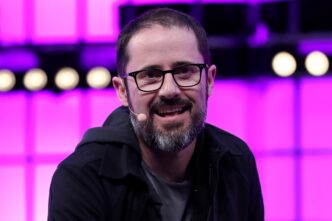Famed startup accelerator Y Combinator (YC) has taken a rare public stand against one of Silicon Valley’s most dominant players, filing an amicus brief in the U.S. government’s antitrust case against Google. In the brief, YC accuses Google of creating a “kill zone” around the web search and advertising markets—one so vast and entrenched that it discourages venture capitalists from backing startups that might otherwise innovate in those domains.
“Google has chilled independent firms like YC from funding and accelerating innovative startups that could otherwise have challenged Google’s dominance,” YC wrote. “The result is a landscape that has been artificially stunted and stagnant.”
YC, which has backed companies like Airbnb, Stripe, and Dropbox, says its own funding priorities—particularly around question-based and agentic AI startups—are directly affected by Google’s dominance. These are exactly the types of tools that could redefine how people interact with information online, but YC says the risk of Google swiftly crushing new entrants has created a climate of fear and hesitation.
The filing, submitted on May 9, was first noticed by investor Sheel Mohnot, who pointed out that YC’s arguments, if implemented, could primarily benefit OpenAI—a company closely intertwined with YC’s history. OpenAI CEO Sam Altman once led YC, and OpenAI itself emerged from YC Research. That connection has led some critics to argue that YC’s motivations may be more strategic than altruistic.
Still, YC stopped short of calling for Google’s immediate breakup. Instead, it proposed a “five-year window” for Google to voluntarily curb its anti-competitive practices. This includes halting the billions in payments it makes to Apple to remain the iPhone’s default search engine and opening up its search index to allow third-party companies to train large language models (LLMs).
The ask to open up Google’s search index is bold—akin to demanding Microsoft open-source Windows or asking Amazon to deliver competitors’ packages for free. YC frames it as a push for “little tech” to get a fair shot, not as an attack on big tech. CEO Garry Tan emphasized this on X, stating that YC still “loves Google” but wants an ecosystem where startups can thrive.
If Google fails to comply, YC supports wielding what Tan called a “spinoff hammer”—a forced divestiture of business units like Chrome or Ads. Remedies like these are currently being evaluated by the DOJ after Google lost a historic antitrust decision last year. The final judgment, including potential penalties, is expected by August 2025.
Google has not commented on YC’s brief but has previously said the DOJ’s remedies would damage the web ecosystem, hurting users and developers alike. It maintains that its agreements, including those with Apple, are lawful and pro-competitive.
The timing of YC’s filing is notable. Despite the sharp critique, YC has a recent history of collaboration with Google, including a dedicated Nvidia GPU cluster from Google Cloud for YC startups and a December 2023 event appearance by Larry Page. Google has also acquired and invested in YC-backed companies over the years, such as Flutter, Fridge, and Infisical.
Whether YC’s sharp pivot from partner to critic will shift the antitrust debate remains to be seen. But the message is clear: one of Silicon Valley’s most influential early-stage backers now believes that Google’s power is holding back the next generation of innovation—and it wants change.













